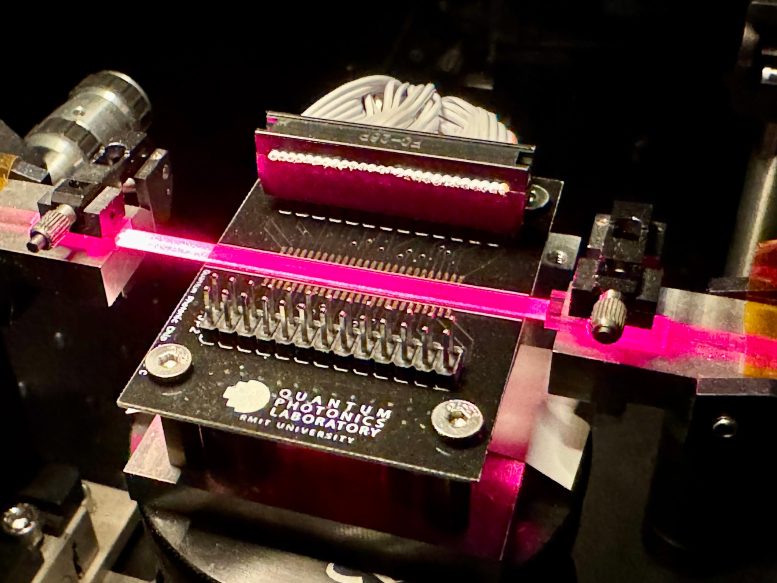
Researchers have developed a groundbreaking light-based processor that enhances the efficiency and scalability of quantum computing and communication. By minimizing light losses, the processor promises significant advancements in secure data transmission and sensing applications. Credit: SciTechDaily.com
A team of scientists has created a reprogrammable light-based quantum processor, reducing light losses and enabling advancements in
In the future, large-scale quantum computers promise to be able to solve complex problems that would be impossible for today’s computers.
Lead researcher Professor Alberto Peruzzo from RMIT University in Australia said the team’s processor – a photonics device, which used light particles to carry information – could help enable successful quantum computations, by minimizing “light losses.”
Enhancing Quantum Efficiency
“Our design makes the quantum photonic quantum computer more efficient in terms of light losses, which is critical for being able to keep the computation going,” said Peruzzo, who heads the ARC Centre of Excellence for Quantum Computation and Communication Technology (CQC2T) node at RMIT.
“If you lose light, you have to restart the computation.”
Other potential advances included improved data transmission capabilities for “unhackable” communications systems and enhanced sensing applications in environmental monitoring and healthcare, Peruzzo said.

The team’s reprogrammable light-based processor. Credit: Will Wright, RMIT University
Research and Development Achievements
The team reprogrammed a photonics processor in a range of experiments, achieving a performance equivalent to 2,500 devices, by applying varying voltages. Their results and analysis are published in SciTechDaily